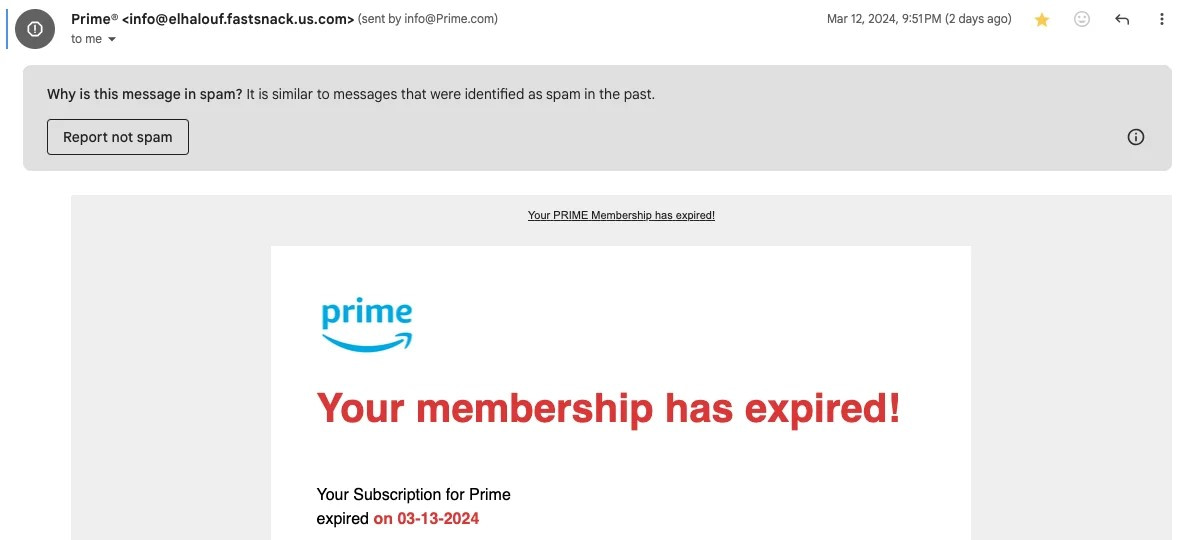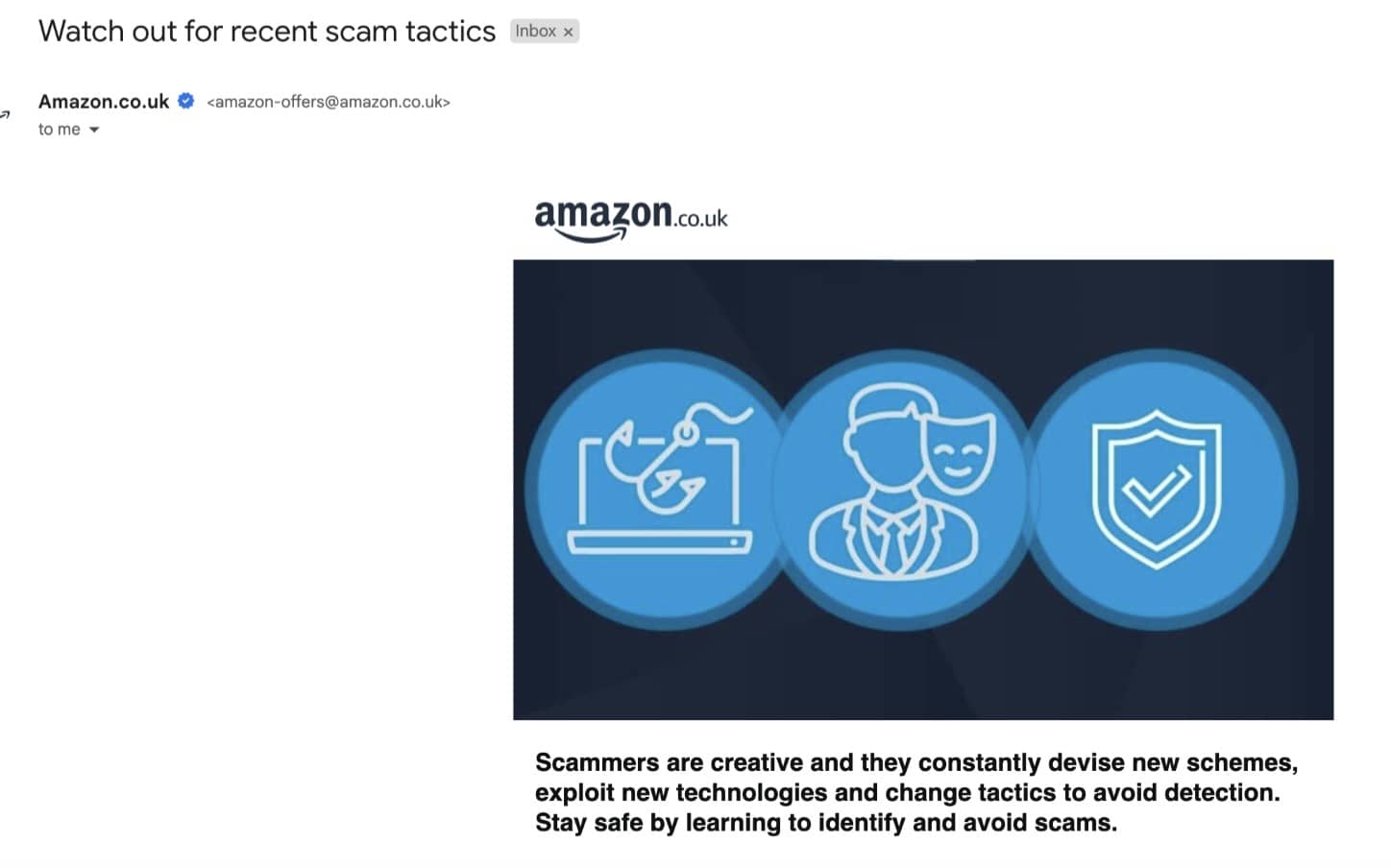Brits search for ‘Amazon scams’ an average of 1,100 times per month, and the average global search volume is 5,800 per month.
Experts at CasinoRevisor are warning you about Prime membership scams that are circulating following Amazon Prime Day.
Prime membership scams
Prime membership scams are unexpected calls, texts, or emails that refer to a costly membership.
Scammers will prompt a fee or an issue with your membership and will ask you to confirm or cancel the charge.
 Image: Reddit
Image: Reddit
The aim behind this scam is to convince you to provide payment or bank account information to reinstate a membership.
Franz Ostendorff, author of CasinoRevisor, said, “Amazon will never ask you to disclose your password or verify sensitive personal information over the phone or on any website other than at Amazon.co.uk.
“Therefore, it is important that you do not click on any links or provide your information to anyone over the phone without authenticating the email or phone call- no matter how legitimate they may sound.
“If you aren’t sure about the status of your account, go directly to Amazon.co.uk or on the app to view your account details. The Message Center will display a log of communications sent from Amazon officially.
“Generally, those shopping online should always beware of phishing emails, asking you to provide personal information or click on suspicious links. Always check the sender’s email address and avoid clicking on links or downloading attachments from unknown sources.
“There is a way you can watch out for suspicious links buy hovering your mouse over the links before clicking on them to see the actual URL. Often, scammers use deceptive links to redirect you to fake websites.
“Finally, be cautious with personal information and remember that Amazon will never ask you for sensitive information like your password, or credit card details through the phone or via email.
“If anyone requests this information, it’s likely it is a scam.”
 Below, Franz Ostendorff author of CasinoRevisor highlights two other Amazon scams shoppers must be wary of.
Below, Franz Ostendorff author of CasinoRevisor highlights two other Amazon scams shoppers must be wary of.
Account suspension/Deletion scams
Account suspension or deletion scams are when scammers will send texts, emails and phone calls stating that your account will be suspended or deleted.
These will include a prompt for you to click on a fraudulent link or verbally provide information to “verify your account”.
Customers who land on these pages or receive these phone calls are then lured to provide account information such as payment information or account login credentials.
To avoid being a victim of either of these scams, always ensure to verify any communications claiming to be from Amazon. Check the sender’s email address or phone number. Amazon will typically use email addresses ending in “@amazon.com.”
It is also recommended you update your security settings, ensuring your device’s antivirus software is up to date and security features in your email account are enabled to filter out phishing emails.
Ahead of last year’s Amazon Prime day, Amazon issued a warning to its customers to stay vigilant of scams.
Here are some additional tips from Amazon to help identify scams and keep your account and information safe:
-
Trust Amazon-owned channels
Always go through the Amazon mobile app or website when seeking customer service, tech support, or when looking to make changes to your account.
-
Be wary of false urgency
Scammers may try to create a sense of urgency to persuade you to do what they’re asking. Be wary any time someone tries to convince you that you must act now.
-
Never pay over the phone
Amazon will never ask you to provide payment information, including gift cards (or “verification cards,” as some scammers call them) for products or services over the phone.
-
Verify links first
Legitimate Amazon websites contain “amazon.co.uk” or “amazon.co.uk/support.” Go directly to our website when seeking help with Amazon devices/services, orders or to make changes to your account.






Leave a Comment